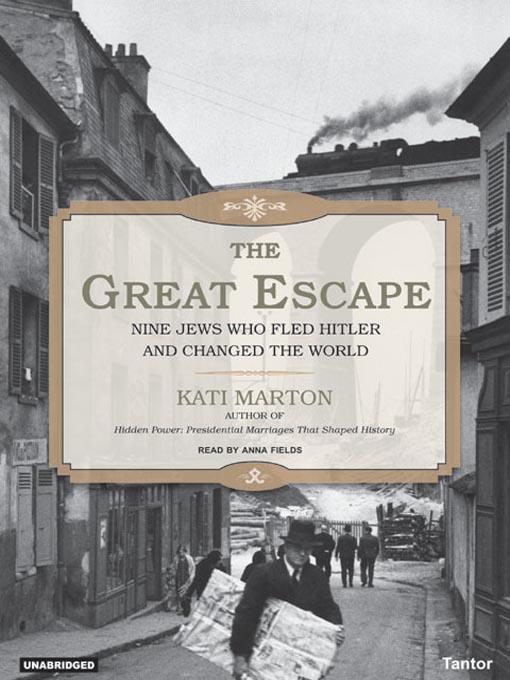
The Great Escape
Nine Jews Who Fled Hitler and Changed the World
فرمت کتاب
audiobook
تاریخ انتشار
2006
نویسنده
Anna Fieldsناشر
Tantor Media, Inc.شابک
9781400173099
کتاب های مرتبط
- اطلاعات
- نقد و بررسی
- دیدگاه کاربران
نقد و بررسی

THE GREAT ESCAPE is the story of nine Hungarians--scientists Leo Szilard, Edward Teller, and Eugene Wigner; computer pioneer John von Neuman; photojournalists Robert Capa and Andre Kertesz; film industry giants Alexander Korda and Michael Curtis; and author Arthur Koestler--who left Budapest to avoid the Nazis and individually and collectively changed the world. The book is a testament to these men and to their determination. Anna Fields is an ideal reader, who demonstrates her versatility by using an elegant style and pacing the material so that the reader can share in Marton's admiration for these extraordinary men. Fields also brings out the personalities behind these geniuses with deft use of inflection and tone. D.J.S. 2007 Audies Award Finalist (c) AudioFile 2007, Portland, Maine

Starred review from August 28, 2006
Noted journalist and bestselling author Marton (Hidden Power
) offers a haunting tale of the wartime Hungarian diaspora. The nine illustrious Hungarians she profiles were all "double outsiders," for, as well as being natives of a "small, linguistically impenetrable, landlocked country," they were all Jews. Fleeing fascism and anti-Semitism for the New World, each experienced insecurity, isolation and a sense of perpetual exile. Yet all achieved world fame. The scientists Leo Szilard, Edward Teller and Eugene Wigner, along with game theorist and computer pioneer, John von Neuman, spurred Albert Einstein to persuade Franklin Roosevelt to develop the atomic bomb. Robert Capa and Andre Kertesz became legendary photojournalists. Alexander Korda was the savior of the British film industry, and Michael Curtiz directed Casablanca
. Arthur Koestler penned the monumental anti-Communist novel Darkness at Noon
. Marton intricately charts each man's career in the context of WWII and Cold War history. Herself Hungarian-born, the daughter of journalists who escaped Soviet-occupied Hungary in 1957, Marton captures her fellow Hungarians' nostalgia for prewar Budapest, evoking its flamboyant cafes, its trams, boulevards and cosmopolitan Jewish community. Marton writes beautifully, balancing sharply defined character studies of each man with insights into their shared cultural traits and uprootedness. 16 pages of photos, map.

























دیدگاه کاربران